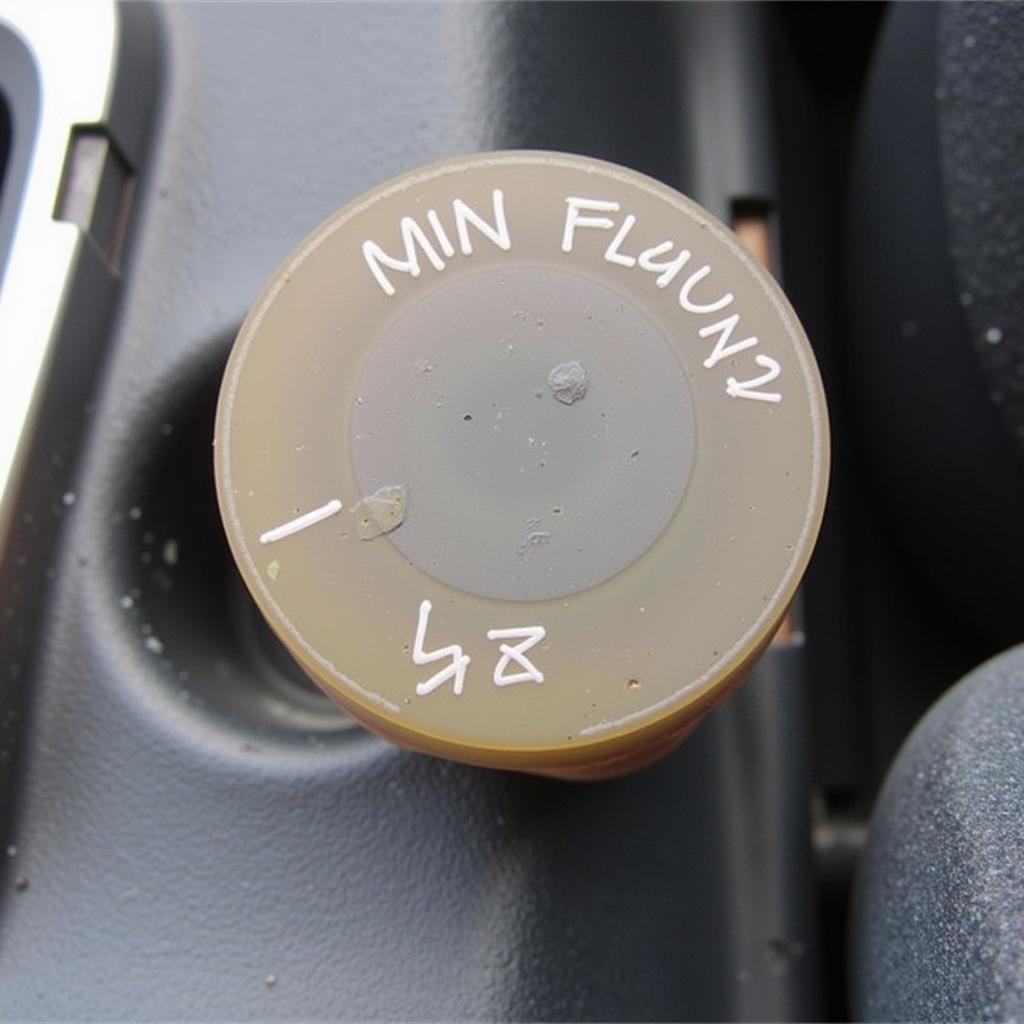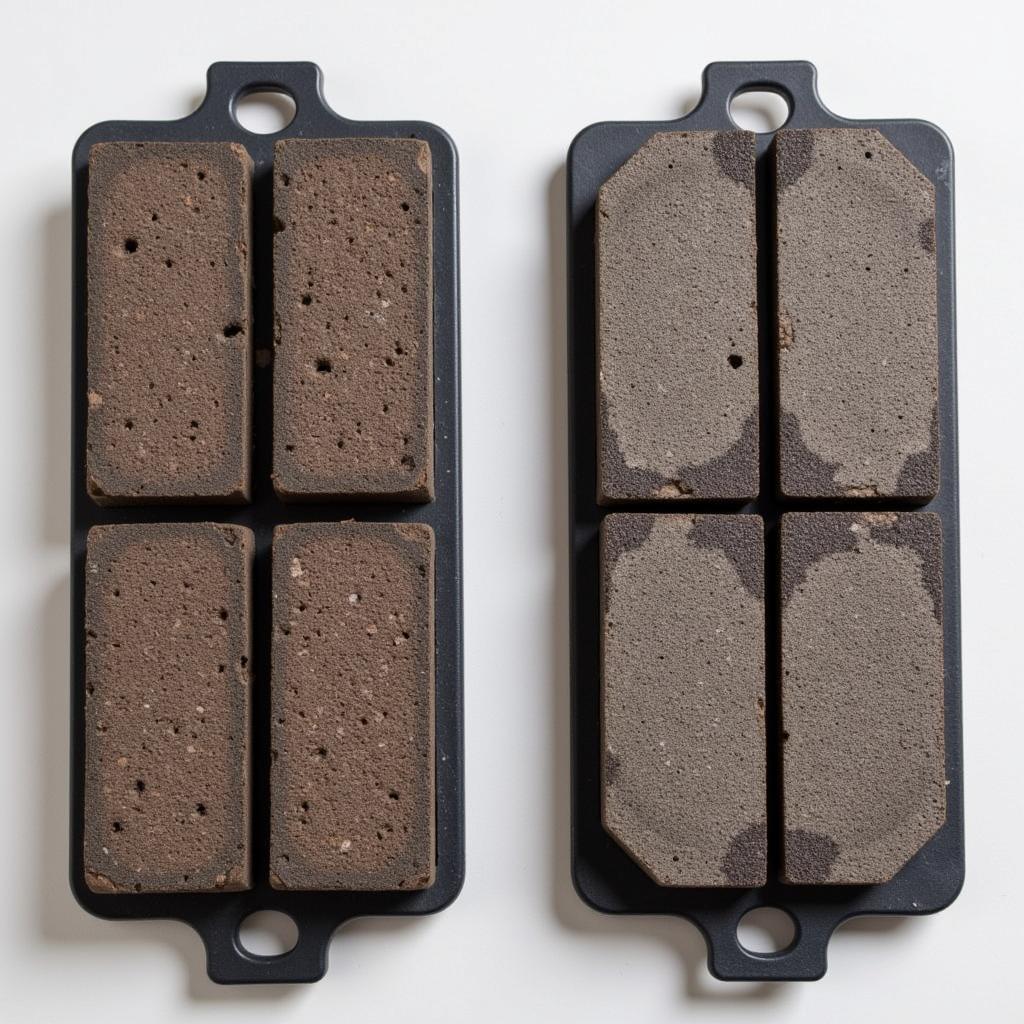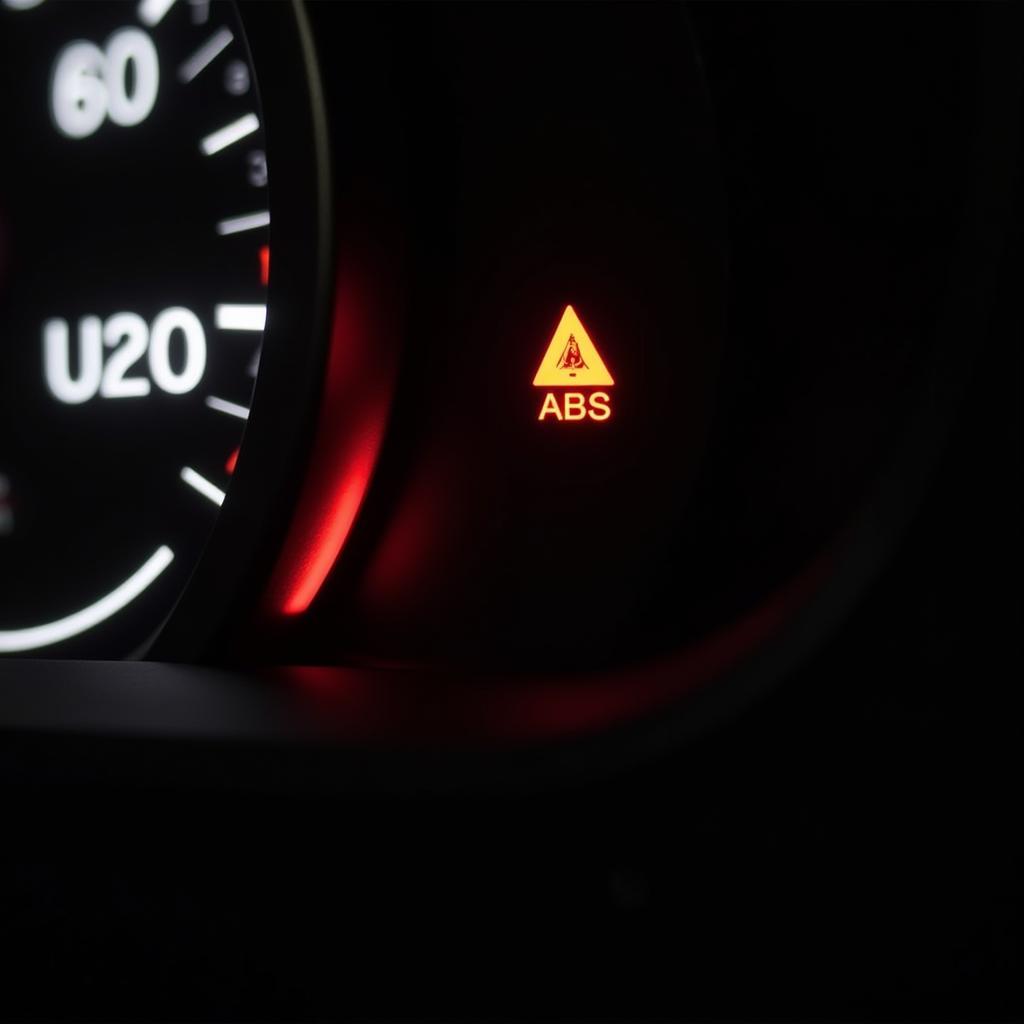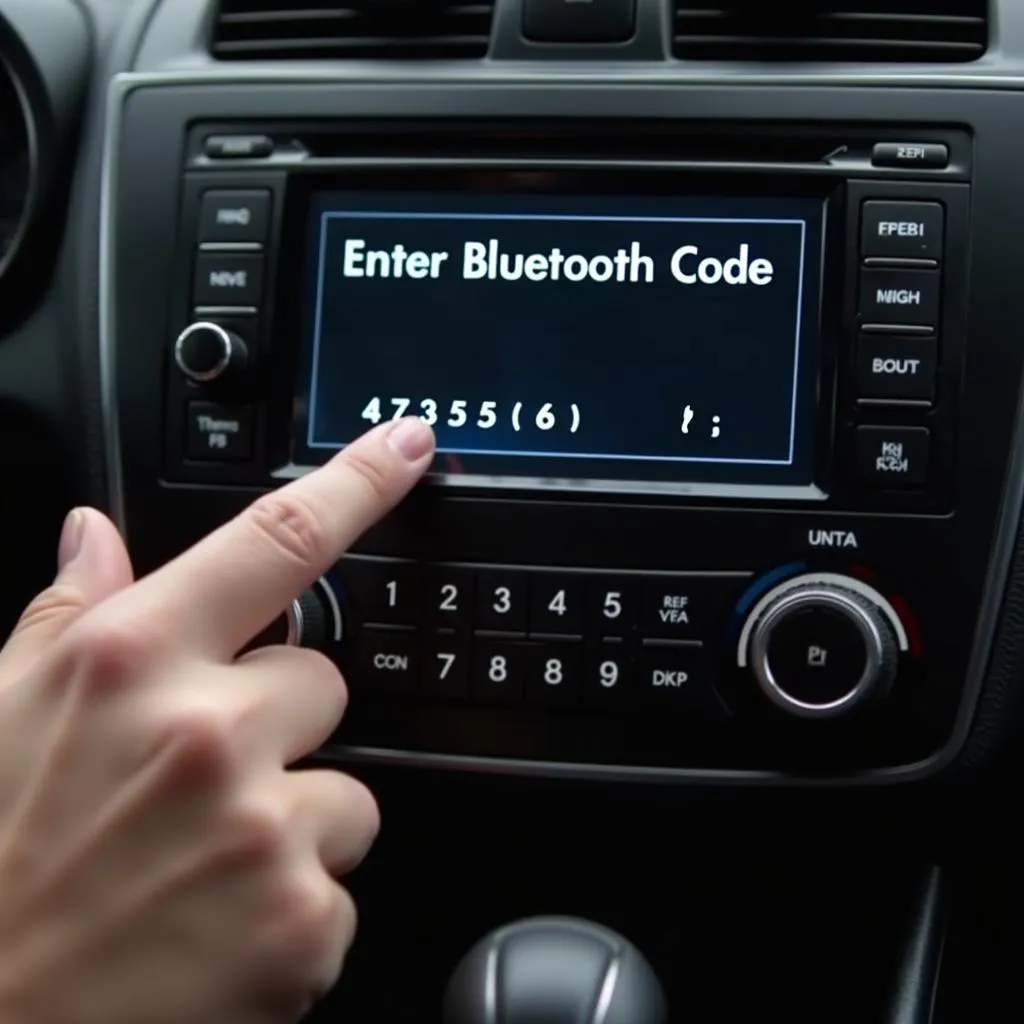The brake warning light on your 2007 Jeep Cherokee is a crucial safety feature designed to alert you of potential braking system issues. Ignoring this warning light can have serious consequences, potentially leading to brake failure and accidents. This comprehensive guide will delve into the common causes of a 2007 Jeep Cherokee brake warning light illumination and provide you with actionable solutions to address them.
Understanding Your Jeep Cherokee’s Brake System
Before we dive into the specifics of the brake warning light, it’s helpful to understand the basics of your Jeep Cherokee’s braking system. The system comprises several key components, including:
- Brake Pedal: The pedal you press to engage the brakes.
- Brake Booster: This component amplifies the force you apply to the brake pedal, making braking easier.
- Master Cylinder: Responsible for converting the mechanical force from the brake pedal into hydraulic pressure.
- Brake Lines: These lines carry the hydraulic pressure from the master cylinder to the brakes at each wheel.
- Brake Calipers: The calipers house the brake pads and pistons. When you press the brake pedal, the calipers squeeze the brake pads against the rotors, creating friction to slow down or stop your vehicle.
- Brake Rotors: These are large metal discs attached to the wheels. The brake pads clamp down on the rotors to generate the stopping force.
Common Causes of a Brake Warning Light
Now, let’s explore the most common reasons why your 2007 Jeep Cherokee’s brake warning light might be on:
1. Low Brake Fluid Level
The most frequent culprit behind a glowing brake warning light is a low brake fluid level. Brake fluid is the lifeblood of your braking system, transmitting hydraulic pressure from the master cylinder to the brakes.
How to Check:
- Locate the brake fluid reservoir under the hood of your Jeep Cherokee. It’s a translucent plastic container with a black cap labeled “Brake Fluid.”
- Check the fluid level. It should be between the “Min” and “Max” marks on the reservoir.
What to Do:
- If the fluid level is low, carefully add the correct type of brake fluid specified in your owner’s manual.
- A sudden drop in brake fluid level often indicates a leak in the system, requiring immediate attention from a qualified mechanic.
 Brake Fluid Reservoir
Brake Fluid Reservoir
2. Worn Brake Pads
Brake pads are designed to wear down over time as you use your brakes. When they become too thin, a sensor embedded in the brake pad triggers the warning light to signal the need for replacement.
How to Check:
- Visually inspect the brake pads through the spaces between the wheel spokes.
- If the pad material is less than 1/4 inch thick, they are due for replacement.
What to Do:
- Brake pad replacement is a relatively straightforward job for those with some mechanical skills.
- If you’re uncomfortable tackling it yourself, consult a certified mechanic.
 Worn Brake Pads
Worn Brake Pads
3. Faulty Brake Caliper
A malfunctioning brake caliper can lead to uneven brake pad wear or prevent the caliper from releasing the brake pads properly. This can cause the brake warning light to illuminate.
How to Check:
- Look for signs of brake fluid leaks around the caliper or uneven brake pad wear on one wheel compared to others.
What to Do:
- A faulty brake caliper needs to be repaired or replaced by a qualified mechanic.
4. ABS Issue
Your Jeep Cherokee is equipped with an Anti-lock Braking System (ABS). This system prevents the wheels from locking up during hard braking, helping you maintain steering control. If the ABS system encounters a problem, it can trigger the brake warning light.
How to Check:
- When you start your vehicle, the ABS warning light (usually amber colored) should illuminate briefly and then turn off. If it stays on, it indicates a potential ABS problem.
What to Do:
- Diagnosing ABS problems requires specialized equipment. It’s best to have your Jeep Cherokee inspected by a qualified mechanic or an automotive electrician specializing in ABS systems.
 ABS Warning Light
ABS Warning Light
5. Faulty Brake Light Switch
While less common, a faulty brake light switch can also trigger the brake warning light. This switch is responsible for activating your brake lights when you press the brake pedal.
How to Check:
- Ask someone to observe if your brake lights are working when you press the brake pedal.
- If the lights don’t come on, the switch may be at fault.
What to Do:
- Replacing a brake light switch is a relatively simple repair. Consult your owner’s manual or seek assistance from a mechanic.
Remote Diagnostics and Software Solutions
In some instances, the brake warning light might be related to software glitches or sensor errors within your Jeep Cherokee’s electronic control units (ECUs). Advanced remote diagnostics and software solutions can prove invaluable in such situations.
How it Works:
- Using specialized equipment, trained automotive electricians can connect to your Jeep Cherokee’s onboard computer system remotely.
- They can then run diagnostic scans, identify software anomalies, and potentially resolve the issue by reprogramming or updating the relevant ECUs.
Benefits:
- Remote diagnostics can often pinpoint the root cause of the problem more efficiently than traditional methods.
- Software-related issues can often be resolved without the need for extensive disassembly or parts replacement, saving you time and money.
Expert Insight:
“Remote diagnostics and software solutions have revolutionized how we approach vehicle diagnostics and repairs. In many cases, we can accurately diagnose and resolve complex electronic issues without the vehicle ever entering a workshop. This technology is particularly beneficial for addressing intermittent issues that are difficult to replicate in a traditional shop setting.” – John Miller, Automotive Electrician and Remote Diagnostics Specialist
Conclusion
Addressing a brake warning light promptly is crucial for your safety and the longevity of your 2007 Jeep Cherokee. While some causes, like low brake fluid or worn brake pads, are relatively easy to diagnose and fix, others may require the expertise of a qualified mechanic or automotive electrician specializing in remote diagnostics and software solutions.
Remember, neglecting your Jeep Cherokee’s braking system can have serious consequences. By understanding the common causes of brake warning light illumination and taking appropriate action, you can ensure your vehicle remains safe and reliable on the road.

